Spending time with my grand mother taught me that plants and trees have heats of their own as a part of nature just like us.
This week I saw beautiful borage* flowers finally bloomed.
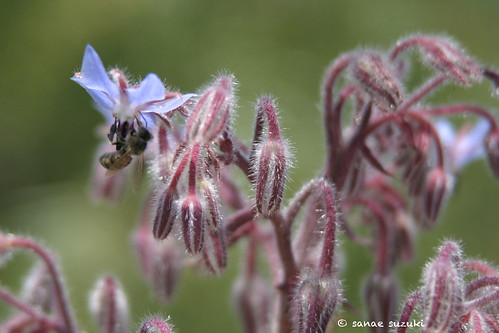
I planted organic borage seeds in March and grow them watch carefully.
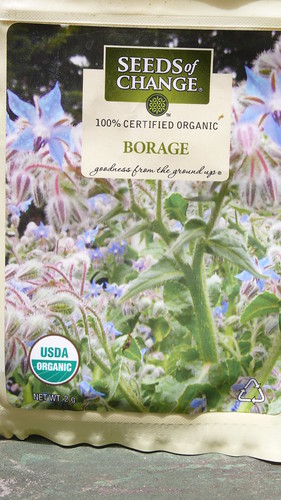
I love using borage flowers for my cooking garnish: soup, salad and grains for summer time. They are beautiful blue flowers lift up our spirits.
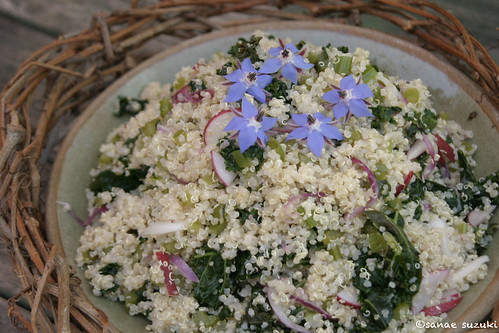
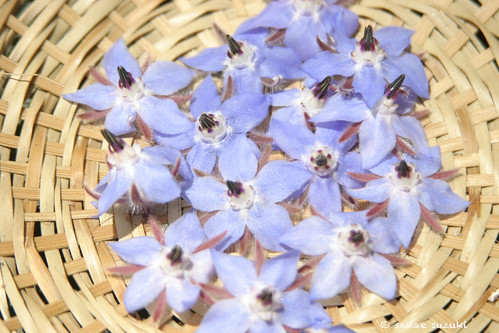
I also love using these flowers for making my skin oil with an organic rose-hip oil *.
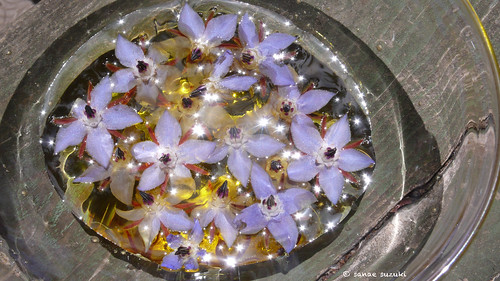
* Here are more information about Borage & Rose Hip oil by Wikipedia.
Borage is also known as a starflower, is an annual herb. It is native to the Mediterranean region and has naturalized in many other locales. It grows satisfactorily in gardens in the UK climate, remaining in the garden from year to year by self-seeding. The leaves are edible and the plant is grown in gardens for that purpose in some parts of Europe. The plant is also commercially cultivated for borage seed oil extracted from its seeds.
Traditional medicine
Traditionally Borago officinalis is used in hyperactive gastrointestinal, respiratory and cardiovascular disorders,[12] such as gastrointestinal (colic, cramps, diarrhea), airways (asthma, bronchitis), cardiovascular, (cardiotonic, antihypertensive and blood purifier), urinary (diuretic and kidney/bladder disorders).[13]In Iran people make a tea for relieve colds, flu, bronchitis, rheumatoid arthritis, and kidney inflammation.[citation needed] It is said to be warm in nature and alleviates symptoms that are caused by using food that is cold in nature such as cucumber and fish. People with heart problems can benefit using the borage tea,[medical citation needed] since it promotes reaching more oxygen to the heart, that’s why one should use this herb in moderate amounts.[14][unreliable medical source?]
Naturopathic practitioners use borage for regulation of metabolism and the hormonal system, and consider it to be a good remedy for PMS and menopause symptoms such as the hot flash.[15] The flowers can be prepared in infusion.
Rose hip seed oil is a pressed seed oil, extracted from the seeds of a wild rose bush.
The oil contains provitamin A (mostly beta-Carotene). It has been wrongly said to contain retinol (vitamin A) which is a vitamin solely made by animals from provitamin A. It does however contain levels (up to .357 ml/L) of tretinoin or all-trans retinoic acid, a vitamin A acid that retinol converts to.[1]
Similarly, while the fruit is rich in vitamin C, the oil does not contain any, as it is a water soluble vitamin.
Rose hip seed oil is high in the essential fatty acids: linoleic acid or omega-6, and linolenic acid or omega-3.
It is commonly used in skin care products. It is commonly used for a variety of skin conditions, including dermatitis, acne and eczema, for mature and sun burnt skin as well as brittle nails and wrinkles. Rose hip oil is also frequently used to heal scarring and diminish photo-aging





No comments:
Post a Comment